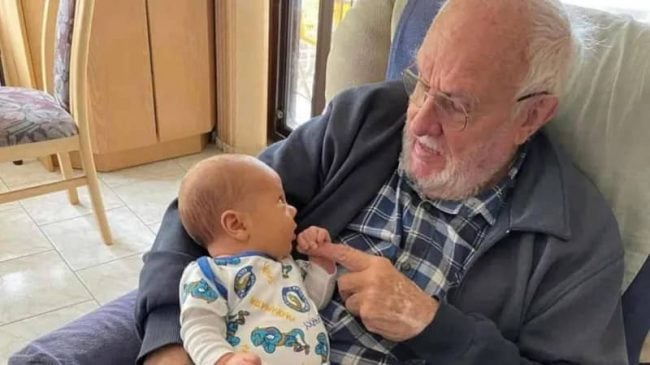James Harrison, one of the world’s most prolific blood donors, has passed away at the age of 88.
He died in his sleep on 17 February at a nursing home in New South Wales, Australia, his family confirmed on Monday.
Known as “the man with the golden arm,” Harrison’s blood contained a rare antibody, Anti-D, which is used to create a medication given to pregnant mothers at risk of developing antibodies that could harm their unborn babies. His donations helped save over two million lives.
The Australian Red Cross Blood Service paid tribute to Harrison, who had pledged to become a donor after receiving multiple blood transfusions during major chest surgery at the age of 14. He began donating blood plasma at 18 and continued every two weeks until he turned 81.
In 2005, he held the world record for the most blood plasma donated, a title he retained until 2022, when a donor in the US surpassed him.
Harrison’s daughter, Tracey Mellowship, said he took great pride in knowing how many lives he had saved.
ALSO READ FROM NIGERIAN TRIBUNE :Oval Office blowup: Trump pauses all military aid to Ukraine
“He always said it does not hurt, and the life you save could be your own,” she said.
Mellowship and two of Harrison’s grandchildren are among those who have received anti-D immunisations.
“It made [James] happy to hear about the many families like ours, who existed because of his kindness,” she added.
Anti-D injections protect unborn babies from haemolytic disease of the foetus and newborn (HDFN), a potentially fatal condition that arises when a mother’s red blood cells are incompatible with those of her baby. The mother’s immune system then attacks the baby’s blood cells, leading to severe anaemia, heart failure, or even death.
Before the introduction of anti-D interventions in the mid-1960s, half of the babies diagnosed with HDFN did not survive.
The reason Harrison’s blood contained such high levels of Anti-D remains uncertain, though some reports suggest it was linked to the massive transfusion he received at 14.
Australia has fewer than 200 Anti-D donors, yet their contributions help an estimated 45,000 mothers and babies annually, according to the Australian Red Cross Blood Service, also known as Lifeblood.
Lifeblood has been collaborating with the Walter and Eliza Hall Institute of Medical Research to develop lab-grown anti-D antibodies by replicating blood and immune cells from Harrison and other donors.
“Creating a new therapy has long been a ‘holy grail’,” said Lifeblood’s research director, David Irving.
He also noted the difficulty of finding donors who not only commit to regular donations but also produce antibodies in the required quality and quantity.
(BBC)






